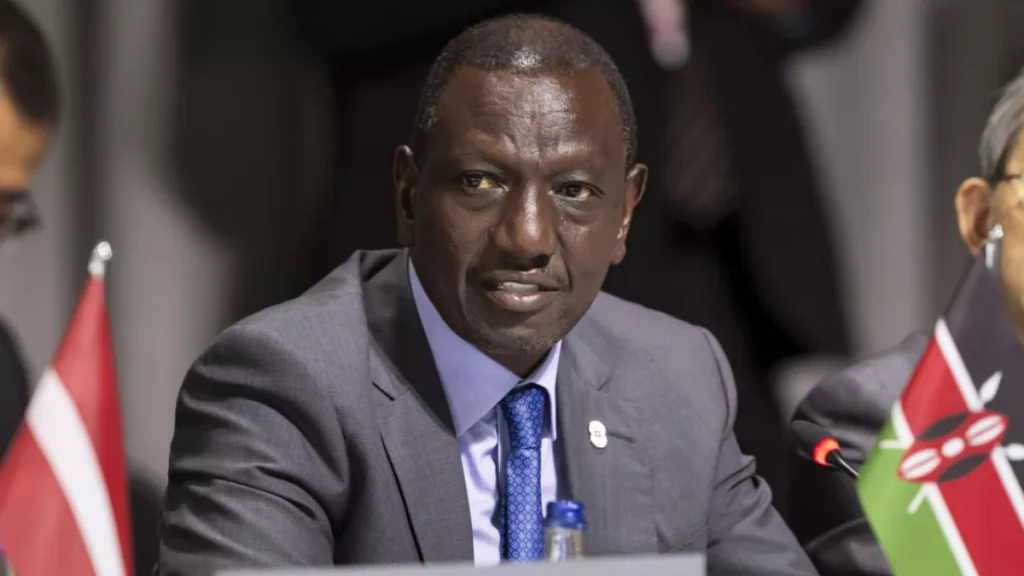The ballooning debt in East Africa’s economic hub of Kenya is expected to grow even more after deadly protests forced the rejection of a finance bill that President William Ruto said was needed to raise revenue. He now warns, “It will have huge consequences.”
Facing public calls to resign, Ruto has said the government will turn to slashing a $2.7 billion budget deficit by half and borrowing the rest, though he hasn’t specified where the money will come from.
After protests over bloated bureaucracy and the lavish lifestyles of senior officials, Ruto has promised funding cuts in his own office and said that the offices of the First Lady, the “Second Lady” (the Vice President’s wife), and the Prime Cabinet Secretary’s wife will have their funding stopped. He also plans to close almost 50 state enterprises with overlapping roles.
Ruto has become deeply unpopular in his two years in office due to his efforts to introduce taxes meant to help Kenya repay its $80 billion public debt to lenders like the World Bank, the International Monetary Fund, and China. This debt is about 70% of Kenya’s GDP, the highest in 20 years.
The big question is how Ruto’s administration will find the money to pay off the debt without further angering Kenyans who are struggling, and without slowing down the economy, which grew by 5.6% in 2023.
Economist Mbui Wagacha, a former adviser to President Uhuru Kenyatta, said Kenya needs a more professional budget and management system, like the Office of Management and Budget in the U.S. Right now, Kenya’s treasury makes budget estimates and sends them to the parliamentary finance committee, which then creates the finance bills.
“Parliament has abdicated its mandate on public finances in the Constitution and is looking after its own interests,” Wagacha said.
He warned that more borrowing could be “disastrous” and suggested using diplomacy to attract investment and restructuring the debt to get some of it written off.
Another economist, Ken Gichinga, agreed that more government borrowing would slow down Kenya’s economy. He pointed out that businesses are still recovering from the COVID pandemic and the war in Ukraine.
“When the government borrows more, interest rates go up. Higher interest rates lead to a slower economy because of the high cost of repayment,” Gichinga said.
Ruto has pushed for self-sustainability, saying Kenya should raise more revenue instead of borrowing. “If we are a serious state, we must be able to enhance our taxes,” he said in May.
But Kenyans have rejected new taxes as they struggle with rising prices, even storming parliament during the recent protests.
Last week, after saying he would not sign the finance bill he once supported, Ruto said he had worked hard “to pull Kenya out of a debt trap” and warned of huge consequences.
Wagacha said economic growth should come before increasing revenue targets and taxes.
“You create an expanded economy with jobs and investment, and people will have money to pay taxes,” he said.
He suggested making low-interest credit available for businesses in key sectors like tourism and agriculture, as small businesses could help reduce youth unemployment.
Gichinga agreed, saying that Kenya needs a jobs-centered economic policy with low taxes and interest rates to support businesses.
The IMF, which suggested some of the controversial tax changes, has faced public dissatisfaction, with some protesters holding signs that read “IMF stop colonialism.”
In a statement last month, the IMF said it was monitoring the situation in Kenya and aimed to help the country overcome its economic challenges and improve its prospects.
